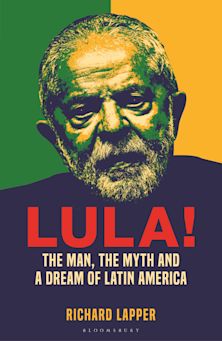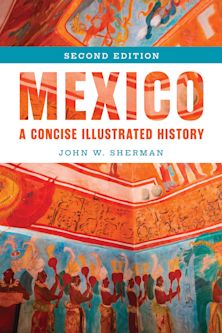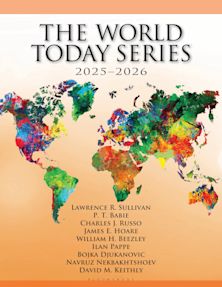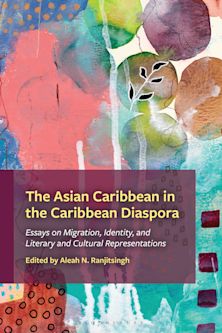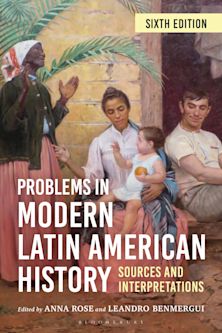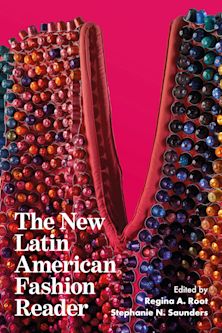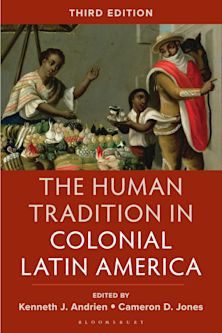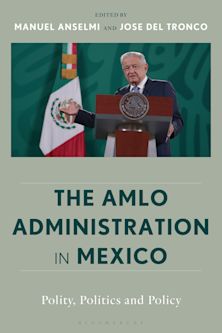- Home
- ACADEMIC
- History
- Latin American History
- Sites of Memory in Spain and Latin America
Sites of Memory in Spain and Latin America
Trauma, Politics, and Resistance
Marina Llorente (Anthology Editor) , Marcella Salvi (Anthology Editor) , Aída Díaz de León (Anthology Editor) , Selfa A. Chew (Contributor) , Martha I. Chew Sánchez (Contributor) , George Ciccariello-Maher (Contributor) , Mallory Craig-Kuhn (Contributor) , Aída Díaz de León (Contributor) , Alfred Limas Hernández (Contributor) , Marina Llorente (Contributor) , Beatriz Carolina Peña (Contributor) , Juan José Ponce-Vázquez (Contributor) , Marcella Salvi (Contributor) , Oscar D. Sarmiento (Contributor) , Liliana Trevizán (Contributor) , Steven F. White (Contributor)
Sites of Memory in Spain and Latin America
Trauma, Politics, and Resistance
Marina Llorente (Anthology Editor) , Marcella Salvi (Anthology Editor) , Aída Díaz de León (Anthology Editor) , Selfa A. Chew (Contributor) , Martha I. Chew Sánchez (Contributor) , George Ciccariello-Maher (Contributor) , Mallory Craig-Kuhn (Contributor) , Aída Díaz de León (Contributor) , Alfred Limas Hernández (Contributor) , Marina Llorente (Contributor) , Beatriz Carolina Peña (Contributor) , Juan José Ponce-Vázquez (Contributor) , Marcella Salvi (Contributor) , Oscar D. Sarmiento (Contributor) , Liliana Trevizán (Contributor) , Steven F. White (Contributor)
You must sign in to add this item to your wishlist. Please sign in or create an account
Description
Sites of Memory in Spain and Latin America isa collection of essays that explores historical memory at the intersection of political, cultural, social, and economic forces in the contexts of Spain and Latin America. The essays here focus on a variety of forms of memory—from the most concrete to the performative—that resist forgetting and unite individuals against hegemonic memory. The volume comprises four thematic sections that focus on Chile, Spain, Argentina, Venezuela, Mexico, Peru, and the Dominican Republic. Keeping in line with the concept informing this collection, that the past returns politically to haunt the present, the four sections move from the contemporary context to the colonial and pre-Columbian eras in Latin America. For all its diversity, the researchers’ interdisciplinary methodology displayed in this collection brings to light processes that would otherwise have remained illegible under a more narrow interpretative approach to historical memory.
This volume focuses on the processes of remembering in geographies that have been transformed by violence and conflict in Spain and Latin America. In the cases investigated witnessing, trauma, and testimony speak to the urgency of truth and justice; historical memory, therefore, is ultimately a political act.
Table of Contents
The Politics of the Past and the Fragmentary Present: Locating Memory in Spain and Latin America, by Aída Díaz de León
Part II: From the Repertoire to the Archive: Memory in Chile after Pinochet
Chapter 1: Performing Memory and Democracy in Chile, by Liliana Trevizán
Chapter 2: Memory in Chile: A Conversation on Democracy. Interview to Ricardo Brodsky Baudet, Executive Director of the Museum of Memory and Human Rights in Chile (December 3, 2013), by Oscar D. Sarmiento and Liliana Trevizán
Part III: Literature as Media of Memory in Spain and Latin America
Chapter 3: Everything Is Coming to Light: Re-appearance of Lost History in Carmen Martín-Gaite's El cuarto de atrás, by Marcella Salvi
Chapter 4: Exile and Erasure: A Poetic Reconstruction of the Spanish Past in Antonio Crespo Massieu's Elegía en Portbou, by Marina Llorente
Chapter 5: Translation as a Means of Preserving Historical Memory in Spain, Nicaragua, and Chile, by Steven F. White
Chapter 6: Narrativa e ilusión: Argentin
Product details
| Published | Sep 03 2015 |
|---|---|
| Format | Ebook (Epub & Mobi) |
| Edition | 1st |
| Extent | 206 |
| ISBN | 9781498507790 |
| Imprint | Lexington Books |
| Illustrations | 1 b/w photos; |
| Publisher | Bloomsbury Publishing |
About the contributors
Reviews
-
This excellent collection of essays reveals new and meaningful connections between the ways in which Spain and Latin America have been coming to terms with recent and not-so-recent violent pasts. The book not only makes the case for a Trans-Atlantic approach to memory studies in the Spanish-speaking world, but is also evidence of the specific contribution that literature, culture, and cultural criticism can make to the complex social processes that define individual and collective relationships with the past.
Sebastiaan Faber, Oberlin College












